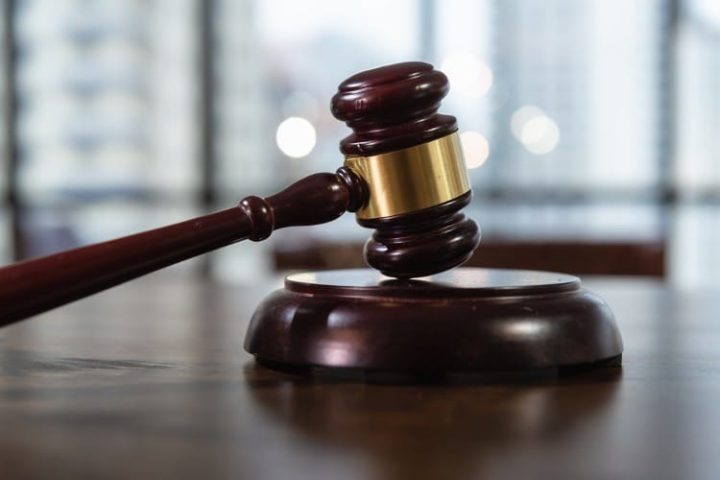
Derek Chauvin, the cop wrongly convicted of “murdering” drug addict and career criminal George Floyd, will not get a public defender to appeal his convictions.
On Thursday, the Minnesota Supreme Court denied his appeal of a ruling from the office of public defenders that rejected a request for the taxpayer-supported defense.
The high court said Chauvin did not prove he was indigent; i.e., that he could not pay to defend himself despite a filing that appears to show exactly that. Except for retirement accounts, the imprisoned ex-cop is broke and almost $150,000 in debt, not counting money owed to Minnesota and the Internal Revenue Service.
Thus, even if Chauvin’s appeal succeeds, the legal battle and prison time might leave him penniless.
The Filing
In April, a jury unjustly convicted Chauvin of killing Floyd on May 25 last year. Floyd died of a fentanyl overdose while Chauvin restrained him with a knee to the back of the neck and shoulders. The police union paid his trial attorney.
On September 20, Chauvin filed an in forma pauperis motion to get a public defender.
Chauvin reported zero income, of course, and zero money in checking or savings accounts. He also reported $142,000 in debts, excluding auto loans and mortgages.
“I am currently incarcerated at Minnesota Correctional Facility, Oak Park Heights,” Chauvin wrote:
I do not have a sufficient source of income, besides nominal prison wages, which are being used to pay off fees from the above captioned case. My only assets are two retirement accounts. If I take funds from said accounts, I will be significantly penalized, and the remainder will likely be taken to pay off debts. I also owe the IRS about $60,000 and the State about $37,000.
Bottom line: Chauvin has nothing except his retirement accounts.
Chauvin Motion In Forma PauperisHigh Court Says No
District Court Judge Peter Cahill, who presided over the trial, granted the motion on September 23, then reversed that ruling the next day.
After that, Chauvin “applied to the OMAPD for appointment of a public defender, stating that his debts currently exceed his limited assets,” the high court ruling observed:
A defendant is financially unable to obtain counsel if “the defendant, through any combination of liquid assets and current income, would be unable to pay the reasonable costs charged by private counsel” or defense of the matter.… The defendant seeking appointed representation bears the burden of establishing eligibility for appointed counsel.
And so the court, “having reviewed Chauvin’s request, the information provided regarding his assets and debts, and the OMAPD’s determination,” ruled that “Chauvin has not established that he is entitled to appointed representation at this time.”
The ruling does not preclude Chauvin from applying for a public defender again.
Chauvin’s Appeal
Chauvin has appealed the show-trial conviction on 14 grounds. Almost all say the district court “abused its discretion,” including by not changing venue, not sequestering the jury, and permitting prosecutors to lead witnesses on direct examination.
Other abuses, the appeal says, include:
- denying Chauvin the right to strike biased jurors during voir dire;
- failing to record sidebar conferences;
- permitting the prosecutors to add the charge of third-degree murder;
- submitting instructions to the jury that materially misstated the law; and
- denying a post-verdict motion for a new trial due to juror misconduct.
As well, the appeal alleges, the “state committed prejudicial prosecutorial misconduct.”
The jury convicted Chauvin despite the coroner’s finding that Floyd had ingested a “fatal level” of fentanyl, a narcotic and respiratory depressant as much as 100 times more powerful than morphine. The fentanyl overdose helps explain why Floyd repeatedly said he couldn’t breathe as Chauvin restrained him.
As well, Floyd also suffered hypertension and serious cardiovascular disease, yet did not sustain life-threatening injuries from Chauvin’s restraint. Floyd also carried the China Virus, the autopsy showed, which is know for its propensity to kill the obese and those with multiple serious comorbidities.
Harvard law professor Alan Dershowitz said the verdict must be overturned because the judge did not sequester the jury, and a baying mob threatened riots if the jury delivered the “wrong” verdict. One mob leader who demanded a verdict of “guilty, guilty, guilty” was leftist Representative Maxine Waters.
As well, one juror was a Black Lives Matter sympathizer who publicly said jury verdicts should foment social change, while a white woman on the jury confessed that she was terrified of mob violence if Chauvin were acquitted.



